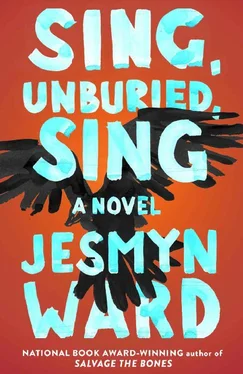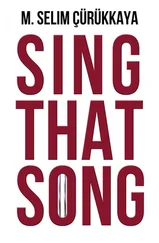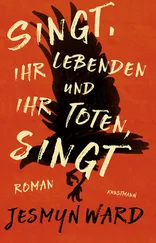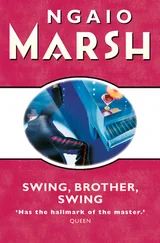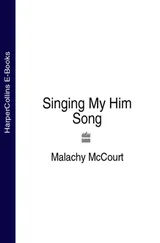“You thirsty?” I ask.
“Yeah,” she whispers.
When she’s done, Kayla drops her sippy cup on the floor.
“Sing,” she says.
“What you want me to sing?” I ask, even though she never tells me. Like I love to hear Pop tell stories, she loves to hear me sing. “ ‘Wheels on the Bus’?” I say. I remember that one from Head Start: sometimes the local nuns would visit the school, acoustic guitars slung over their backs like hunting rifles, and play for us. So I sing it low enough that I won’t wake Mam, my voice dipping and cracking and grating, but Kayla swings her arms and marches around the room anyway. When Pop leaves the boiling pot and comes into the living room, I can hardly breathe and my arms are burning. I’m singing “Twinkle Twinkle Little Star,” another Head Start hit, and throwing Kayla up in the air, almost to the high ceiling, before catching her. If she was a squealer, I wouldn’t do it, because then she would definitely wake Mam. But as the smell of onions and garlic, bell pepper, and celery cooked in butter clouds the air, Kayla rises and falls, her arms and legs flung out, her eyes shining, her mouth open in a smile so wide it looks like she could be screaming.
“More,” she pants. “More,” she grunts when I catch her to toss her again.
Pop shakes his head, but I keep throwing, because I know, by the way he wipes his hands on the dish towels and leans in the wood doorjamb he planed and nailed to make the archway, he doesn’t disapprove. He built the ceilings high on purpose, twelve feet, because Mam asked him to, said that the more room in the house from floor to roof, the cooler it would be. He knows I won’t hurt her.
“Pop,” I huff when Kayla lands more on my chest than in my arms. “You’ll tell me the rest before you take the meat out to the smoker?”
“The baby,” Pop says.
I catch Kayla and spin her around. She pouts when I put her down and pull a Fisher-Price play set that used to be mine from under the sofa. I blow off the dust and push it toward her. There’s a cow and two chickens in the set, and one of the red barn doors is broken, but she still sinks to the floor and lies on her chest to make the plastic animals hop.
“See, Jojo?” Kayla asks, and bounces the goat. “Baa, baa,” she says.
“She all right,” I say. “She ain’t paying no attention to us.”
Pop sits on the floor behind Kayla and flicks the remaining door.
“It’s sticky,” he says. And then he looks up at the dimpled ceiling and sighs into a sentence, and then another. He is telling the story again.
Richie, he was called. Real name was Richard, and he wasn’t nothing but twelve years old. He was in for three years for stealing food: salted meat. Lot of folks was in there for stealing food because everybody was poor and starving, and even though White people couldn’t get your work for free, they did everything they could to avoid hiring you and paying you for it. Richie was the youngest boy I ever saw up in Parchman. There was a couple thousand men separated into work farms over all them acres. Damn near fifty thousand acres. Parchman the kind of place that fool you into thinking it ain’t no prison, ain’t going to be so bad when you first see it, because ain’t no walls. Back in the day, it was just fifteen camps, each one surrounded by a barbed-wire fence. Wasn’t no brick; wasn’t no stone. Us inmates was called gunmen because we worked under the trusty shooters, who was inmates theyselves, but who the warden gave guns to oversee the rest of us. The trusty shooters was the type of men that be the first one to speak when they walk into a room. The kind that draws attention to hisself, talks big about the beating and stabbing and killing they did to get up in a place like that because it makes them feel bigger to be seen. Makes them feel like real men to see fear.
When I first got to Parchman, I worked in the fields, planting and weeding and harvesting crops. Parchman was a working farm right off. You see them open fields we worked in, the way you could look right through that barbed wire, the way you could grab it and get a toehold here, a bloody handhold there, the way they cut them trees flat so that land is empty and open to the ends of the earth, and you think, I can get out of here if I set my mind to it. I can follow the right stars south and all the way on home. But the reason you think that is because you don’t see the trusty shooters. You don’t know the sergeant. You don’t know the sergeant come from a long line of men bred to treat you like a plowing horse, like a hunting dog—and bred to think he can make you like it. That the sergeant come from a long line of overseers. You don’t know them trusty shooters done been sent to Parchman for worse than getting into a fight at a juke joint. Just know the trusty shooters, the inmate guards, was sent there because they like to kill, and because they done it in all kind of nasty ways, not just to other men, but to women and—
Me and Stag was put in separate camps. Stag got convicted of assault, I got convicted of harboring a fugitive. I’d worked, but never like that. Never sunup to sundown in no cotton field. Never in that kind of heat. It’s different up there. The heat. Ain’t no water to catch the wind and cool you off, so the heat settles and bakes. Like a wet oven. Soon enough my hands thickened up and my feet crusted and bled and I understood that when I was on that line in them fields I had to not think about it. I ain’t think about Papa or Mam or Stag or the sergeant or the trusty shooters or the dogs, barking and slobbering at the mouth at the edge of the fields, daydreaming of tearing into a heel, a neck. I forgot it all and bent and stood and bent and stood and only thought of my mother. Her long neck, her steady hands, the way she braided her hair forward to cover her crooked hairline. The dream of her was the glow of a spent fire on a cold night: warm and welcoming. It was the only way I could untether my spirit from myself, let it fly high as a kite in them fields. I had to, or being in jail for them five years woulda made me drop in that dirt and die.
Richie ain’t had near that time. It’s hard enough for a man of fifteen, but for a boy? A boy of twelve? Richie got there a month and some weeks after I got there. He walked into that camp crying, but crying with no sound, no sobbing. Just tears leaking down his face, glazing it with water. He had a big head shaped like an onion, the kind of head seemed too big for his body: a body all bones and skin. His ears set straight away from his head like leaves coming off a branch, and his eyes was big in his face. He ain’t blink. He was fast: walked fast, his feet not shuffling, not like most when they first come to camp, but high stepping, knees in the air, like a horse. They undid his hands and led him to the shack, to his bunk, and he lay down in the dark next to me and I knew he was still crying because his little shoulders had curved in like bird’s wings when it’s landed but they was still fluttering, but he still ain’t make no noise. Them night guards at the doors to the shack go on a break, things can happen to a boy of twelve in the dark if he a crybaby.
When he woke up in the dark morning, his face was dry. He followed me out to the latrines and to breakfast, and sat down next to me in the dirt.
“Mighty young to be in here. How old you is? Eight?” I asked him.
He looked insulted. Frowned and his mouth fell open.
“How biscuits taste nasty?” he asked, and hid his mouth behind his hand. I thought he was going to spit the bread out, but he swallowed and said: “I’m twelve.”
“Still mighty young to be in here.”
“I stole.” He shrugged. “I was good at it. I been stealing since I was eight. I got nine little brothers and sisters always crying for food. And crying sick. Say they backs hurt; say they mouths sore. Got red rashes all over they hands and they feet. So thick on they face you can’t hardly see they skin.”
Читать дальше
